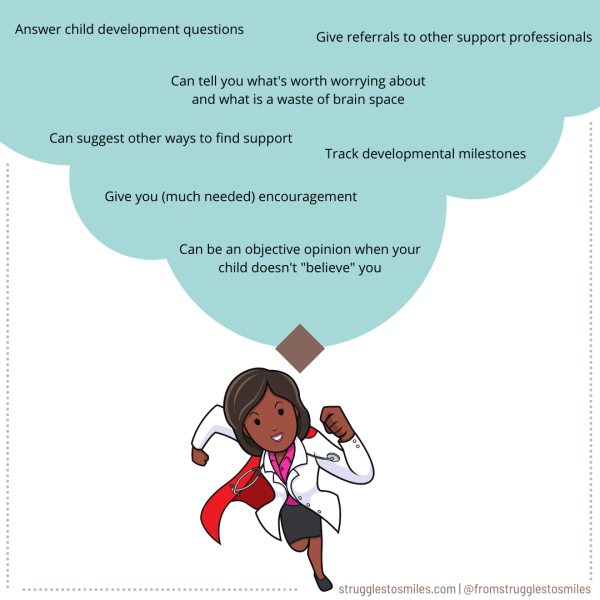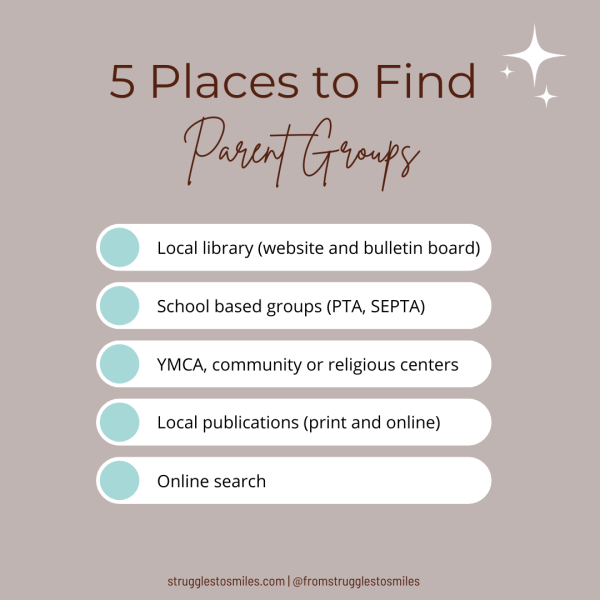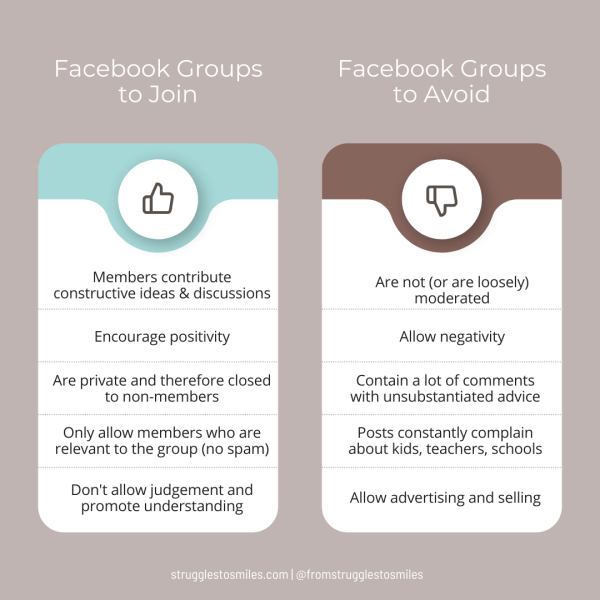Parenting can be scary, particularly when your child enters a new stage, hits a rough patch, faces a challenge, or receives a new diagnosis. Children don’t come with instruction manuals and sometimes navigating the uncharted territory can feel overwhelming. Would it make you feel better if I told you that you can build your very own highly effective team to help you be the best parent that you can be? You are not alone! There are supports for parents to help you raise a happy, successful, independent adult. It’s time to use them!
Supports for parents are important during any phase that your child goes through, but they are MOST important when your child is going through a rough patch.
Here is the secret… By building and nurturing a strong support framework for your child, you can focus on your one most important job. PARENTING.
It wasn’t until we went through a truly difficult time in our daughter’s life that we realized just how important the framework that we had built as our support system really was.
Our daughter K was diagnosed with Obsessive Compulsive Disorder (OCD) in the summer before her junior year. A severe, multiple day panic attack led to the diagnosis and Blayne and I both felt lost. We were hurting for her, watching her struggle and fighting her brain minute after minute, hour after hour. Despite all of our combined years working with children, we didn’t have the first clue how to help her.
Luckily, over K’s life, we had gathered a literal “dream team” of people that we trust, and go-to resources that we rely on. So, we went into emergency mode, dove into our resources, and piece by piece, put together a plan and a group of support professionals for K.
Once we had a plan, we embarked on our journey. When things hit a snag, we adjusted and kept on moving forward. The 3 of us were empowered and determined (most of all K who is the real superhero here). Now I think that we can all look back and confidently say that we are stronger for what we went through.
You’re here because you are looking for help. Even though you might not know it yet, you need your own team of super heroes to guide you! Those are your resources, the people and things that you trust and you turn to when things in the bumpy road of parenting take a turn. They are your team that pulls up next to you and guides you to safety.
You are your child's project manager
Let’s redefine your role as a parent, shall we? Try to think of yourself as a project manager or general contractor. Let that replace your role as the person trying to do all of the jobs well, simultaneously, with no help. Does that sound better? Good, you just got a promotion.
You are now your child’s project manager, the leader of their support team. Your priority as project manager is to love, guide and support.
Remember… You are NOT a mental health professional, dietician, pediatrician, occupational therapist, speech therapist, teacher, coach and tutor all rolled into one magical parent package. Just no. And even if you are one of those things in your professional life, it’s not usually helpful to play that role in your own child’s life.
You ARE however, the person who knows your child best. You love them the most, and you want to see them succeed more than anything. Therefore, my friend, you are 100% qualified to be the best project manager of your child’s situation.
Your new job requires a bit of reading, researching, and commitment to continued learning (like parenting professional development). It also means taking care of and loving yourself and your family.
Most importantly, your new job as project manager requires using the supports for parents that are available and putting a framework in place for your child that will lead them to success.
Remember… you’re the project manager, the general contractor. YOU ARE YODA.
Right now, are you thinking, “ok, sure, this all sounds well and good. But I am not Chrissy Teigen/John Legend. I can’t afford an army of support professionals to turn to any time my kid has a situation.”?
Well, get ready, because I’m about to blow your mind…
Many of these resources and supports are free, or are available to you through programs that you are already part of.
So, on that note, let’s get to the good stuff…
10 incredible supports for parents
#1 - Pediatricians
“I already have a pediatrician, so I don’t need to read this section”…
Wait just one minute…
Are you utilizing all of your pediatrician’s superpowers? They see a zillion (literally <<wink, wink>>) children each year. They are highly trained, intelligent and caring and are already part of your lives. So, this makes them the perfect addition to your dream team!
However, I bet you are underutilizing them.

ANYTIME I ever had a question when K was younger, my mom (who is superwoman herself) either handed me a book, or told me to “ask your pediatrician”. And she was 100% correct.
Our pediatricians (it’s a group) have been one of our best resources throughout good times and challenging ones. Always there to answer questions for us, give us informed and rational advice, and to allay any concerns.
I have to add that we found 2 of our other incredible support superheroes from the recommendations of our pediatrician. So much love to them for always guiding us down the path to success!
Find a great pediatrician and nurture that relationship.
#2 - Teachers and Guidance Counselors
Teachers and guidance counselors are another group of highly trained and underutilized superheroes. If you know how to effectively enlist their help, then they can provide quite a bit of support for parents.
Sometimes your child will bond with certain teachers who see them for who they are.
I had a 6th grade science teacher who I LOVED. She understood me, allowed me to be myself, and taught in ways that made science come alive.
So, when I had a conflict with a group of students, I went right to Mrs. Spielberger. She gave me a pep talk, suggested some strategies, and told me that if I needed a place to hang out, her door was always open. In my 6th grade mind, she saved my life that day (oh the drama of a 6th grader).
When your child has a teacher that they connect with, you (and your child) need to nurture that bond.
For example, if your child has a struggle in school, whether it’s with another student, another teacher, a behavior, or a subject, then encourage them to seek out the teacher that they bond with.
Instead of you running in to the school all “mama/papa/grandparent/guardian bear” (no shame, we’ve all been there), empower your child to seek out help in an adult that they trust.
This has many benefits:
- You are relieved of the job of having to manage the school based situation yourself. This then frees up your emotions so that you can focus on love, support and encouragement.
- It allows the professional to handle the conflict or struggle. (Well done, project manager!)
- Your child sees that they are capable of handling a stressful or scary situation themselves.
- You strengthen the bond that your child has with that adult, as well as the understanding that the adult has of your child.
Additional ways that teachers can provide support for parents: making suggestions of how to handle an academic struggle, observing a situation at the school level, recommending other teachers to use as tutors, and possibly providing specialized help (special education, reading, language, subject specific).
***This category can also include principals, assistant principals, paraprofessionals or any school support worker that your child bonds with.
#3 - Child Development Experts
There is a wealth of information available about child development. Experts cover topics such as gifted education, behavior modification, diverse learning styles, learning disabilities, bullying, and honestly everything that you could possibly experience with your child.
Google is a powerful tool, and knowing how to find, verify and utilize the knowledge of experts is a skill. You aren’t going to call up an expert or send them an email expecting a response about your particular situation. However, you can certainly learn from their work through books, articles, websites and podcasts.
There are too many books and podcasts to list here. I will be posting them in our resources section soon, but this is a good place to start…
The Child Development Institute offers this list of books on child development, a few of which are cornerstones of child rearing literature such as How to Talk so Kids will Listen & Listen so Kids will Talk by Adele Faber and Elaine Mazlish.
Familiarize yourself with the experts who provide supports for parents in your situation. Whether you enjoy their books, devouring their websites or listening to them speak, this can become a powerful tool in your parenting toolbox.
#4 - Coaches, Advocates and Consultants
While you wouldn’t contact a renowned child development expert directly, there are people (myself included) that have studied the work of those experts, worked with loads of children and/or parents, and are specialists in our fields. Coaches, advocates and consultants are usually available through 1-1 sessions, blogs, workshops, social media, podcasts and other publications.
Here are a few standouts:
- The Workspace for Children – Lizzie Assa is a parent strategist and play advocate working to combat parent burnout by advocating for anti-perfectionism. Her Instagram and website are incredible. I wish that I had Lizzie around when K was younger. She is a wealth of play oriented, healthy conflict resolving, feeling conscious, support for parents.
- Understood – A non-profit organization that offers a podcast, blog, tips and strategies to support people who learn and think differently.
- Dr. Becky at Good Inside – Dr. Becky offers online workshops, courses, a blog, podcast and a newsletter designed to help you “handle any tantrum, fit, fight or tricky situation in your home”.
- Working Parents Guide – Danielle Pickens of Working Parents Guide is the guru of doing more by doing less. She offers 1-1 consulting, workshops and strategies that focus on “practical resources for a simpler, saner and more sustainable working parenthood”. Find her on Instagram and Linked In as well as on her blog.
- Struggles to Smiles – Yes, that’s me, Kathy Gelbman, turning struggles into smiles! Here to guide you in helping your struggling student succeed. As a special education teacher and parent of a child with OCD, I offer my expertise through information, resources, and 1-1 coaching for parents. I help navigate academic struggles, special education, mental illness, behavioral, and social emotional needs as they effect your child in school. Subscribe to my blog (below), follow my instagram, or check back periodically for updates!
These are just a few to get you started. Do a search, see whose philosophy you agree with and then allow them to lead you! Following or subscribing to their media might give you an occasional helpful reminder that what you’re going through is normal and you are not alone.
#5 - Parent Groups
Parent groups are often founded around certain interests or abilities. So, you can seek out what suits you. They can be school based, community based, or privately organized.
It’s pretty common for parent groups to host speakers. That means that you can take advantage of a no/low cost opportunity to gather some valuable expert input. Additionally, it’s a great way to meet other parents who are having similar experiences to yours.

There are many varieties of parents, and many types of children, hence the wide array of parent groups. The key is to find a group that you click with and where you feel comfortable. The parents that you meet may very well become some of your strongest parenting supports.
#6 - Support Professionals (Therapists, OT, PT, Speech)
Before I had a child, I never would have guessed that a therapist would be one of my most valuable supports for parenting. However…
When K stopped speaking in kindergarten, she wouldn’t respond to the teacher or eat a single bite at school. At home though, she was an incredible conversationalist and food connoisseur. This is how we knew something was amiss and that we needed professional help. That was one of the times when our pediatrician handed me a gold star recommendation.
Aimee became one of our family’s greatest resources, and has been a part of our super team for 14 years! Since she and K go way back, K can easily rely on Aimee (as can I) for advice, a bit of counseling, therapy or just a direction when needed.
For us, since K has anxiety/OCD, therapy was the outside support that we needed. However, other families have a different support professional (PT, OT, Speech Therapist, behavioral therapist, etc,…) to fill this role. If your child has an issue that requires a support professional, nurture that relationship!
These specialists are highly trained in their fields, USE THEIR WISDOM!!!
#7 - Tutors: online and in-person
When your child is struggling with a specific subject (math, social studies, economics, AP chemistry, shoe tying or volleyball – yes, there are tutors for everything), you don’t have to be the one to help them figure it out. Remember… Project manager!
There are subject specialists (otherwise known as tutors) readily available to help.
The even better news, is that there are some really great online tutoring platforms. This can make tutoring more accessible, budget friendly and convenient if an online format works for your child.
When K was in high school, she was having a tough time with AP chemistry. Not being equipped to help her ourselves, I sought out a tutor. Finding a local tutor who could handle AP chem proved to be elusive and expensive!
I found Varsity Tutors, and I was thrilled to see that they had a slew of available tutors, who could work with K’s busy schedule.
She could even log in to ask a quick question when needed. Her tutor was a college student majoring in chemistry and was a huge help!
Once your student knows how it works, you can give them the autonomy to seek out help independently as well.
As an example… after her first experience, K had some extra online tutoring credits remaining. One day I came home to her telling me “mom, I booked myself a tutoring session to go over some ACT prep”. Cheers kiddo, well done! <<pats myself on back>>
#8 - Other Parents
Talking with other parents who have similar experiences can be very therapeutic. However, this support may require a bit more digging. The only way to find other people who are experiencing the same thing as you, is to speak openly to others about what you’re going through. Sometimes that part is difficult.
One day I came across my neighbor “M” walking her dog on our street. We stopped to say hello and she confided in me that her child was struggling. He had just been diagnosed with OCD. She was shocked to learn that K also had OCD. We immediately began to share our experiences. Going forward, I passed on a lot of the research that I had done, provided her with resources that I had compiled and was able to encourage her that everything would be alright.
Does it feel like another parent might be a nice addition to your team, but you don’t know who to ask? Then try to inquire with some of your other supports.
When K was diagnosed with OCD and thinking “how am I ever going to live a normal life like my friends” (as teenagers typically do), our therapist connected her with another patient (permission was obtained from both families). She was the same age as K and also had OCD.
It was a wonderful way for K to see that other people were going through this. She didn’t feel as alone, and could see that her life was not going to be ruined.
Teachers, guidance counselors, social workers, occupational therapist, physical therapists, speech therapists, librarians, coaches, religious leaders, etc,… get creative. People who are in the field may know someone similar and they can connect you (with permission).
#9 - Facebook Groups
Facebook Groups can be an easily accessible way to find groups of similar parents. However, I suggest this with a bit of hesitancy. While there is a huge amount of value and camaraderie to be found on Facebook, specifically in FB groups, there is also a lot of nonsense. It is IMPERATIVE that if you are going to join facebook groups, that you choose wisely!
Should you choose to seek out a FB group, here are some guidelines…

Start by searching for the topic that interests you. Then look at the group rules to see if you can determine which category above they will fall into (join or avoid). You may need to join, and then determine whether it’s a worthy group or not. Please always remember that the knowledge and recommendations of your child’s doctor and support professionals come before the opinion or “expertise” of a random person on Facebook.
#10 - Family and Friends
One of the hardest things to realize as a parent is that every child goes through things. Hey, in the back, did you hear that? EVERY CHILD GOES THROUGH THINGS!
Now, if that’s clear, then I can tell you that talking openly with your close family and friends about what is going on in your life, and specifically with your kids will bring you relief. There is no need to be ashamed, embarrassed or to feel guilty. You are not a burden. People who love you want to be there for you. You know who they are, so lean on them.
Trusted family and friends may be able to give you some direction. If not, they can just be there as a listening ear or a shoulder to lean on. It’s lonely when your child is struggling and lonely isn’t a good feeling. A sad and lonely parent is not the best parent they can be. Whether they provide a simple a gab session or a laugh to ease your mind, loved ones are important supports.
Just remember that your people can’t be supportive if they don’t know what’s happening. So let yourself be open and honest. It will take a huge load off of your shoulders.
Again, remember… project manager… putting all of the supports in place for the benefit of yourself and your family.
Conclusion
Look at all of these supports for parents that are available to help you manage your child’s issues!
Becoming your child’s “project manager” and putting supports in place, will make you a more effective parent. This means less worrying and more living!
I have always known that our “dream team” of supports have been incredibly valuable to us. Only recently however, did I realize a secondary effect of this mindset.
K is currently off living her best college life in Colorado. In her first 2 months of college, we have watched her piece together and begin to nurture her own support network.
K has a doctor from student health who she connected with and emails when she has questions. Her therapist in CO was one that she interviewed herself and selected based on knowing her own needs. She has had to advocate for herself based on her OCD with 2 of her professors and a TA. And finally, our cousin lives nearby and K leans on her for a dose of family support and help keeping her fridge stocked.
Watching K build her own dream team made me realize that the framework we built had layers of benefits. It helped us through tough times, that’s obvious. But, it also taught K how to find support and how to advocate for herself.
All 3 of us are appreciative every day for the resources that came to our rescue when we needed them. We are always sure to let them know how valuable their time, effort and contribution to our family is. Each year at Thanksgiving we give our valued supports a pie to remind them how thankful we are.
Just like a good project manager does, let your people know that you are successful because of them. Nurture those bonds! You can choose how you want to do it, a note, a small token of your appreciation (it’s the thought that counts). But, ALWAYS let the important people who support you know their value in your life.
Now you are ready to take the first step in creating your own supports based on your child’s needs. Start today by identifying 1 person in your child’s school and one person outside the school that your kiddo connects with. Then, think of 1 issue that those supports might be able to help with and reach out to them.
Congratulations! Every time that you reach out to a support to answer a question or solve an issue for your child, you are one step closer to being the best project manager that you can be.
Please share any questions or other supports for parents that you would like to suggest in the comments below.



